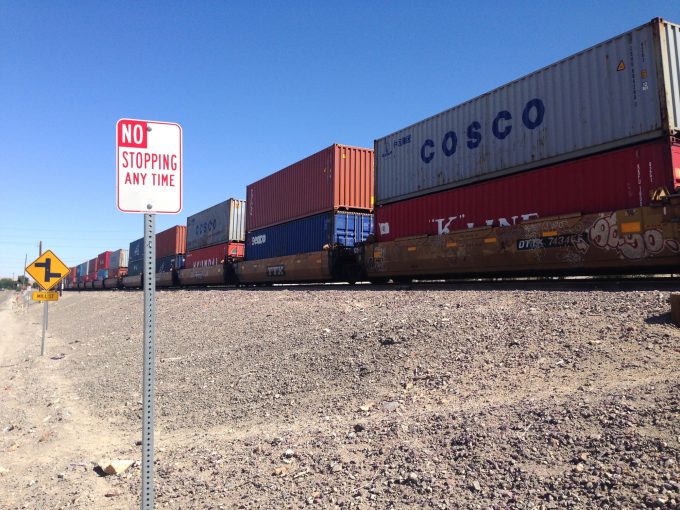US intermodal picking up steam as trucking woes continue
After a long trough of sluggish performance, US intermodal traffic is growing, and the market ...

Collapsing volumes and revenue are the trend in North America’s intermodal sector, with three of the four big carriers reporting sizeable losses in the third quarter.
However, bucking the trend is recently merged rail operator Canadian Pacific Kansas City Southern, which saw a 1.5% bump in intermodal revenue for the three months to September, and year-to-date revenue up 8% on 2022.
CEO Keith Creel said: “We are now more than six months into the CPKC story, and I am pleased with the progress we continue to make in unlocking the value of this unrivalled North American network.
“While we encountered challenges, due to a softer macro-economic environment and external labour disruptions, we remain focused on safely delivering for our customers.”
Revenue across its energy, chemicals and plastics division, almost doubled, compared with Q3 22. CPKC moved some 8.49m tons of intermodal traffic over the three-month period, only slightly up on the 8.41m moved in the same period last year, while for the year to date, it handled 24.6m tonnes, against 23.3m last year.
Meanwhile, Canadian National recorded its second quarter of double-digit decline; revenues plummeting 34% from C$1.3bn in Q3 22 to $880m this year, as it continued to face subdued demand and weak consumer confidence, recording a 15% volume shortfall. Year-to-date revenue was 23% short of this time last year, down from $3.7bn to $2.8bn, as volumes fell 6% year on year.
CEO Tracy Robinson, though, appears to be holding out for a rebound, noting that he and the team “remain confident in our ability to accelerate sustainable, profitable growth in 2024 through 2026”.
Similarly, Union Pacific reported 18% and 14% decline in Q3 and year-to-date revenue, to US$1.1bn and $3.3bn, respectively.
Its CEO, Jim Vena, also pointed to economic factors as the cause for the weak performance, and said the overall 10% dip was tied to reduced fuel surcharge revenue, lower volumes, and its business mix, and added: “We faced many challenges in the quarter, including continued inflationary pressures and a drop in carloads.”
Meanwhile, at CSX, Q3 revenue declined 14%, to US$517m, and YTD by 13%, to $1.7bn, as volumes fell 7% and 9%, respectively.
It said: “Lower volume was due to decreased international shipments driven by high inventory levels and lower imports.”
Comment on this article